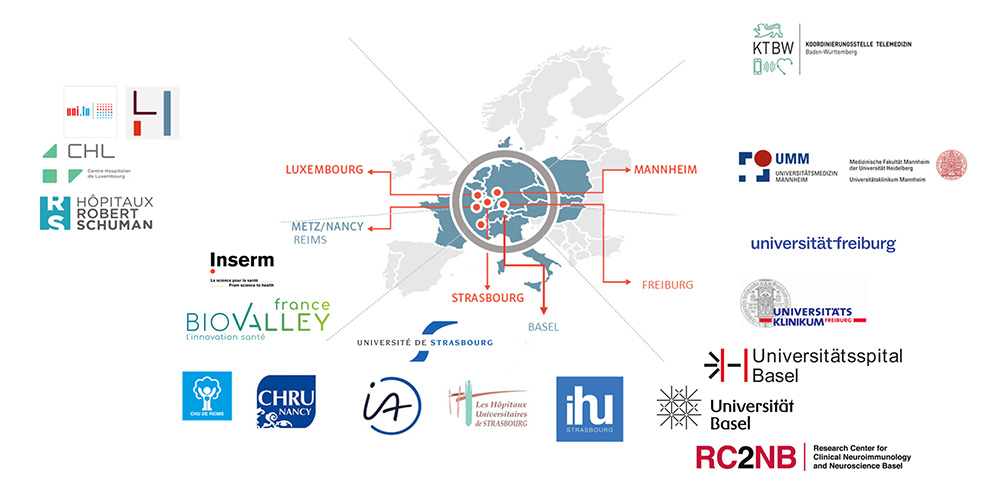Personalized medicine with optimum data protection
Researchers from Switzerland, France, Germany and Luxembourg plan to use artificial intelligence to improve the treatment of patients with autoimmune diseases. The aim is to enable customized therapies for multiple sclerosis, rheumatoid arthritis and inflammatory bowel conditions.
15 May 2024 | Angelika Jacobs
The same treatment doesn’t work the same in every patient. Every person is different, has their own individual disease progression, or responds better or worse to specific active ingredients – with more or fewer side effects. It is for this reason that the concept of “big data” is raising hopes in the healthcare sector. The analysis of large quantities of patient data could yield new insights into who will benefit the most from which therapy.
One major obstacle to this is that the data is so heterogeneous: hospitals sometimes have their own procedures that define how they collect and analyze samples or which measurements they take. This makes it difficult to compare data from different health centers.
Another problem is that in order to bring together sufficient quantities of data that could be used to train an artificial intelligence (AI), it is necessary to combine patient data across borders. This raises concerns around data protection.
Decentralized AI training
The research consortium Clinnova wants to realize the full potential of AI for precision medicine. With this in mind, the project approach is intended to ensure the quality of the data as well as data protection: on the one hand, the participating institutions establish joint processes in order to collect a series of clearly defined data over the coming years. This includes clinical data, biological samples such as blood and urine, and measurements with digital sensors, as well as medical imaging data. To this end, the researchers are recruiting patients in order to establish several cohorts, which they will accompany over the next few years.
On the other hand, they are developing digital infrastructure for “federated learning.” The principle behind this decentralized training for AI is that the data from different health centers does not flow into a large database in order to train the AI; rather, parts of the algorithm are applied to the respective data of the individual institutions. The data remains decentralized, and the AI is trained using aggregated statistical parameters derived from the data.
Recently, the Canton of Basel-Stadt provided CHF 4 million in funding for the project. “Each participating institution has to provide its own funding,” explains Professor Cristina Granziera from the University of Basel, who is in charge of the Clinnova project in Basel and leads the section on multiple sclerosis research. “It’s only thanks to this support from the canton that we’re able to participate in this consortium, which will benefit not only our patients but also the University of Basel and University Hospital Basel for a long time to come.” Granziera also represents Switzerland and Basel within the Clinnova international leadership consortium.
Predictions of effectiveness and timing
Dr. Bram Stieltjes, head of the Personalized Health Basel research network, is convinced that digital infrastructure such as this offers huge potential for personalized medicine. Within the framework of “Clinnova-MS,” for example, the plan is to train algorithms to generate personalized treatment solutions for patients. MS is known as the “disease with a thousand faces” because it can exhibit very different disease progressions and characteristics from one person to the next.
“For example, the data we will collect with our MS cohort, and the AI-assisted analysis of that data, could highlight characteristics associated with early stages of MS and transitional phases to progressive MS,” explains Granziera. This and other insights from the project should help to provide patients with even better support in the future, because they provide experts with a basis for selecting the optimum treatment options and the best time for them.
“This project will break new ground for the healthcare sector on an international level,” says Andrea Schenker-Wicki, President of the University of Basel. “It will allow us to conduct research using digital health data from large, international patient cohorts with the help of AI and thus to create considerable added value for academic research, industry and society as a whole.”




